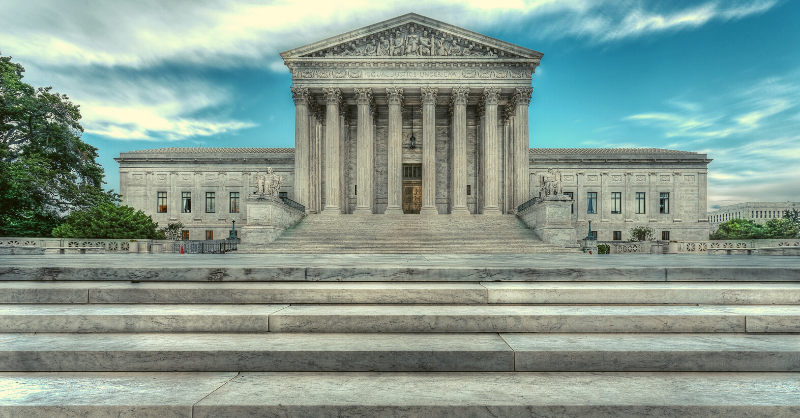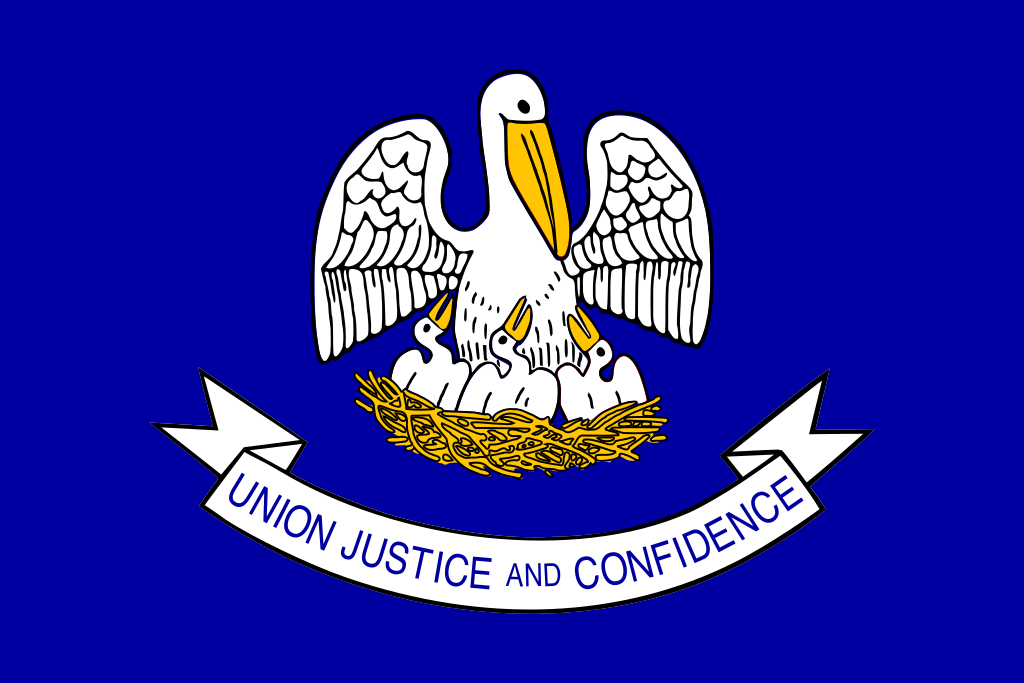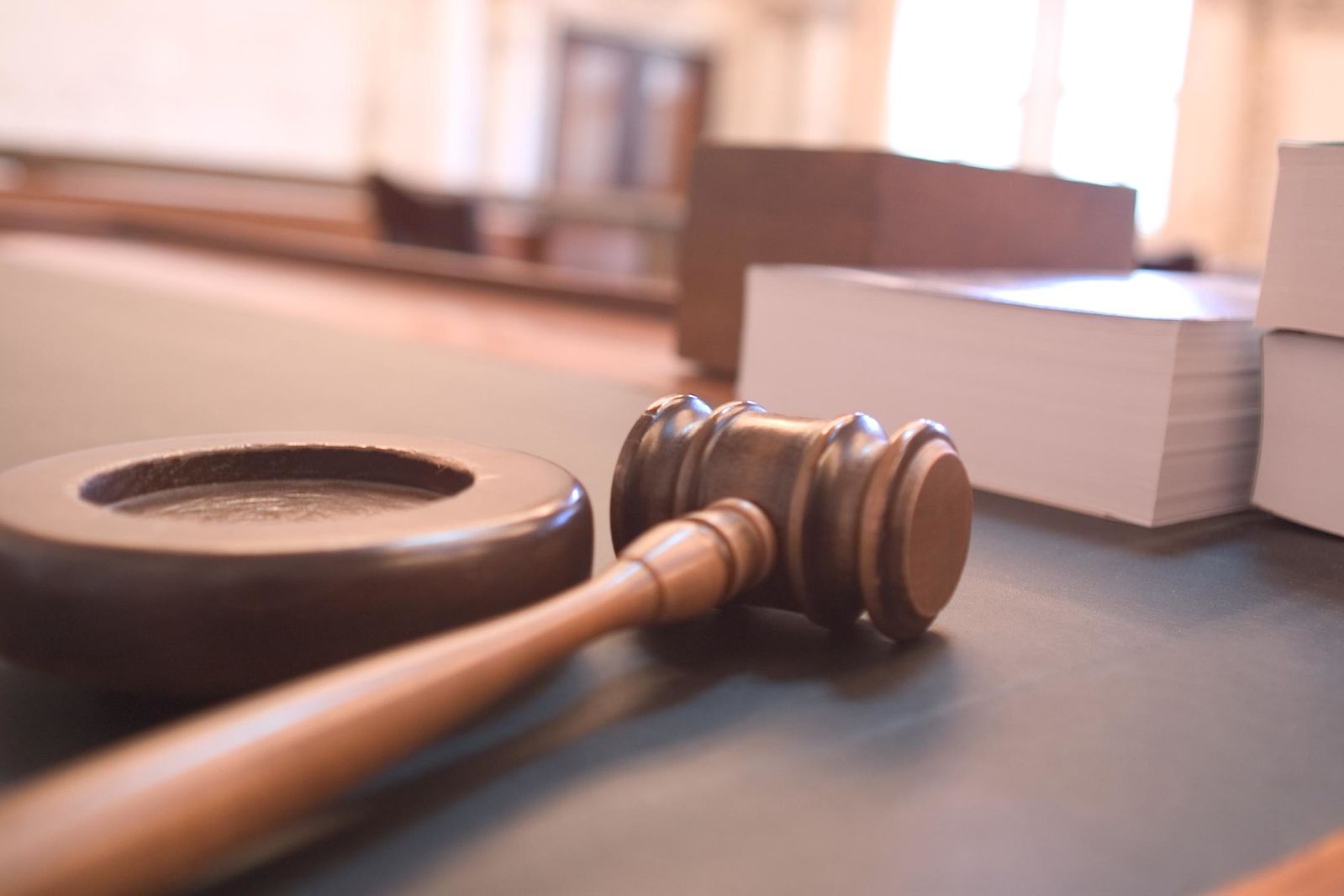Tag: Supreme Court
-
SCOTUS hears oral argument in challenge to Chevron deference

The United States Supreme Court on January 17, 2024, heard oral argument in Loper Bright Enterprises v. Raimondo and Relentless, Inc. v. Department of Commerce—two consolidated cases challenging an agency’s interpretation of a federal fishery law that could affect future applications of Chevron deference by the federal courts. A coalition of commercial fishermen in Loper…
-
SCOTUS accepts 43 cases this term; 20 scheduled for argument so far

The Supreme Court of the United States (SCOTUS) accepted 43 cases for the 2023 term as of November 7, 2023. Of those cases, 20 have been scheduled for argument, and one case was dismissed. The Court has seven cases scheduled for its December sitting. Among these is McElrath v. Georgia, which concerns the double jeopardy…
-
State AGs: Social policies could violate the law following SCOTUS affirmative action ruling

Thirteen Republican state attorneys general sent a letter on July 13 to major corporations suggesting that certain social policies (the S in ESG) like making hiring or promotion decisions based on race might be illegal following the Supreme Court’s recent ruling on affirmative action. Ballotpedia tracks support for and opposition to the environmental, social, and…
-
U.S. Supreme Court lifts stay on district court ruling that overturned Louisiana's congressional boundaries

The U.S. Supreme Court dismissed Louisiana Secretary of State Kyle Ardoin's (R) appeal on June 26 of a federal district court ruling that held that Louisiana's congressional district map should include an additional majority-minority district. The Supreme Court also lifted its 2022 stay of the federal court's decision and allowed the case to proceed before…
-
Ballotpedia identifies 17 noteworthy Supreme Court cases regarding redistricting from 1946 to 2023

Ballotpedia has identified 17 noteworthy redistricting cases that the Supreme Court has heard since 1946, and the court issued two such rulings this month. In a 5-4 decision in Allen v. Milligan on June 8, SCOTUS affirmed the judgment of the United States District Court for the Northern District of Alabama that the state's congressional…
-
U.S. Supreme Court affirms state court authority to overturn congressional district boundaries in Moore v. Harper

On June 27, the United States Supreme Court ruled in Moore v. Harper that the North Carolina Supreme Court's 2022 decision overturning the state's congressional district boundaries did not conflict with the Elections Clause in the U.S. Constitution. Although the state supreme court subsequently reversed its decision, SCOTUS upheld the state court's authority to decide…
-
Ballotpedia identifies 17 noteworthy Supreme Court cases regarding redistricting from 1946 to 2023

Ballotpedia has identified 17 noteworthy redistricting cases that the Supreme Court has heard since 1946, with the most recent one being Allen v. Milligan. In a 5-4 decision on June 8, SCOTUS affirmed the judgment of the United States District Court for the Northern District of Alabama that the state's congressional redistricting plan adopted in…
-
Chief Justice John Roberts on track to write 2nd-fewest opinions in 2022-2023 term

United States Supreme Court Chief Justice John Roberts has authored two of the 36 opinions for the 2022-2023 term as of June 16, 2023, which is the fewest authored opinions of all justices. Justices Neil Gorsuch and Amy Coney Barrett have authored five, Justices Sonia Sotomayor, Clarence Thomas, Ketanji Brown Jackson, and Elena Kagan have…
-
U.S. Supreme Court overturns Alabama's congressional maps in Allen v. Milligan decision

On June 8, 2023, the United States Supreme Court ruled 5-4 that Alabama's congressional redistricting plan adopted in November 2021 and used in the state's 2022 elections violated the Voting Rights Act and must be redrawn to include a second majority-Black district. In November 2021, a group of Alabama voters and organizations sued Secretary of…
-
Supreme Court limits EPA's regulatory authority over wetlands

The U.S. Supreme Court on May 25, 2023, unanimously held in Sackett v. Environmental Protection Agency (EPA) that the EPA’s regulatory jurisdiction over the nation’s wetlands is limited. The decision echoes the court's 2022 ruling in West Virginia v EPA, in which the justices limited the scope of the agency's authority to regulate greenhouse gas emissions.…

